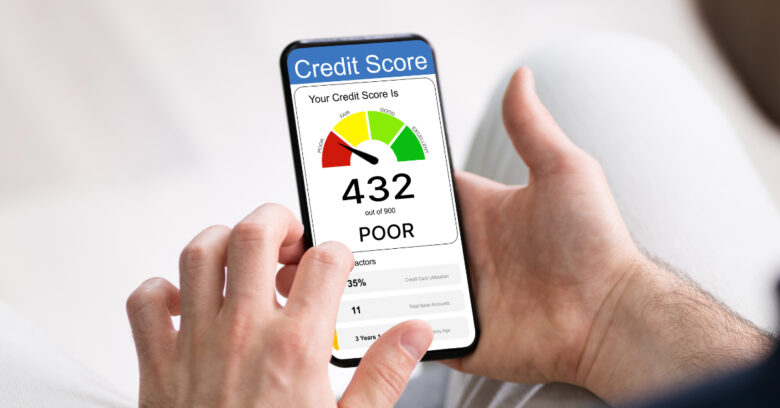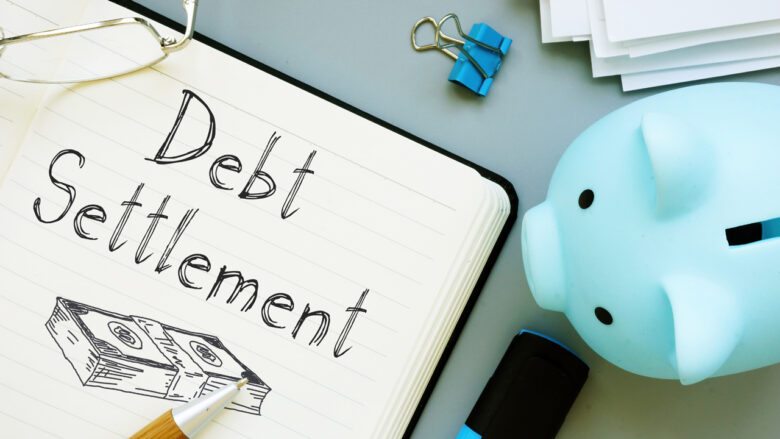Navigating financial challenges can be daunting, especially when considering the implications of debt settlement on your credit score. This process, often seen as a last resort for those overwhelmed by debt, can have significant impacts on your financial standing. For individuals facing litigation and the associated costs, resources like floridalawsuitloans.com, which offers lawsuit loans in Florida, can provide some relief. In this article, we’ll delve into the intricacies of debt settlement, dissect its effects on credit, and explore whether it’s a step in the right direction for your financial future. Understanding the nuances of this financial decision is crucial for anyone looking to navigate the choppy waters of debt resolution while aiming to maintain or restore their credit health.

Source: cardinsider.com
Contents
Understanding Debt Settlement
Debt settlement is a financial strategy where you negotiate with creditors to pay a lump sum that is less than the full amount you owe to resolve your debt. It’s a service often facilitated by debt settlement companies that advocate on your behalf to reach an agreement with creditors. The allure of this approach lies in its potential to reduce the overall debt burden, but it’s not without its complexities and consequences.
The process begins with an analysis of your financial situation, followed by the debt settlement company setting up an escrow-like account where you make monthly deposits. Once enough funds are accumulated, these companies reach out to creditors to negotiate a settlement, often for a fraction of the outstanding debt. This negotiation can result in a significant reduction of the total amount owed, providing a sense of financial relief.
However, it’s crucial to recognize that debt settlement companies typically operate for profit. They may charge fees for their services, which can add to the overall cost. Additionally, not all creditors are willing to negotiate, and there’s no guarantee that the settlement will be substantially less than the original debt.
While debt settlement can be a viable path for those unable to fulfill their full debt obligations, it’s essential to approach this option with caution. Understanding the potential for reduced debt against the fees and the impact on your credit score is critical before committing to this course of action.

Source: winkandwink.com
Debt Settlement vs. Non-Payment: A Comparative Analysis
When faced with overwhelming debt, you may find yourself choosing between debt settlement and simply not paying your debts. Here’s a comparative analysis of both options:
| Factor | Debt Settlement | Non-Payment |
|---|---|---|
| Credit Score Impact | Causes an initial drop but can be rebuilt over time. | Leads to a significant and prolonged negative impact. |
| Debt Resolution | Debts are negotiated to a lower amount and considered settled once paid. | Debts remain unpaid, continue to accumulate interest, and can lead to legal action. |
| Future Creditworthiness | Potential to regain creditworthiness with disciplined financial behavior. | Severely damages creditworthiness, making future borrowing difficult or more expensive. |
| Cost | Involves fees and potential tax on forgiven debt but reduces overall debt owed. | Accumulates additional fees, interest, and potential legal costs without reducing debt owed. |
| Timeframe | Can take several years to negotiate and settle all debts. | Debt can linger indefinitely, with ongoing collection efforts and possible judgments. |
While debt settlement negatively affects your credit score, it provides a structured path to becoming debt-free and allows for credit repair over time. Non-payment, however, can lead to a more severe and lasting impact on your credit score, increased debt through accruing interest, and the potential for legal consequences.
The Credit Score Aftermath: Repairing Your Credit Post-Settlement
After navigating the turbulent waters of debt settlement, the journey towards credit score recovery begins. This process is neither quick nor easy, but with a strategic approach, you can gradually rebuild your creditworthiness. Here’s a guide to help you on this path:
- Review Your Credit Report: Obtain a copy of your credit report from the major credit bureaus. Scrutinize it for inaccuracies or outdated information that could negatively affect your score.
- On-Time Payments: Ensure that all your current accounts are kept in good standing by making timely payments. Consistency is key, as payment history is a significant factor in your credit score.
- Credit Utilization: Work on reducing the balances on any remaining debts. Keeping your credit utilization ratio — the amount you owe relative to your credit limit — below 30% can positively influence your score.
- Credit Mix and New Credit: If possible, diversify your credit mix by responsibly using different types of credit, and avoid opening several new accounts in a short period, as this can be a red flag to lenders.
- Credit Builder Loans: Consider a credit builder loan, which is designed to help people with damaged credit. The money borrowed is held by the lender in an account while you make payments, building credit in the process.
- Secured Credit Cards: A secured credit card, backed by a cash deposit from the user, reduces the risk to the issuer and can be a practical tool in rebuilding credit.
- Professional Advice: If you’re unsure where to start, consulting with a non-profit credit counselor can provide personalized advice tailored to your financial situation.
Remember, rebuilding credit is a marathon, not a sprint. It requires patience, discipline, and a commitment to changing the habits that led to the settlement in the first place. With time and effort, your credit score can recover, opening the door to a more stable financial future.

Source: alleviatefinancial.com
The Downsides of Debt Settlement
While debt settlement can offer a lifeline by reducing the amount owed, it’s not without significant drawbacks. Understanding these pitfalls is essential before embarking on a debt settlement plan.
- Credit Score Impact: The most immediate downside is the negative effect on your credit score. Settling a debt for less than the full amount owed can signal to future lenders that you may be a riskier borrower, which can remain on your credit report for up to seven years.
- Taxes on Forgiven Debt: Often overlooked is the tax implication of settled debt. The IRS may consider any forgiven debt over $600 as taxable income, which could increase your tax liability and lead to an unexpected bill come tax season.
- Fees and Costs: Debt settlement companies charge fees for their services, which can be substantial. Sometimes, these fees may offset the savings achieved by settling the debt.
- Potential for Scams: The industry is rife with scams. Unscrupulous companies may promise more than they can deliver, charge high fees upfront, or even fail to negotiate with creditors effectively, leaving you in a worse financial position.
- Credit Access and Terms: Post-settlement, obtaining new credit can be more challenging. If lenders are willing to extend credit, it may come with higher interest rates or less favorable terms due to the perceived increased risk.
- Emotional and Psychological Stress: The process can be long and stressful, impacting not just your finances but also your mental health and personal relationships.
In summary, while debt settlement can reduce your debt load, it’s important to weigh these disadvantages against the potential benefits. A careful assessment of your financial situation and long-term goals should guide your decision.
The Timeline for Credit Recovery
Rebuilding credit after a debt settlement is a process that varies by individual, but typically, you can expect a recovery period that spans from a few years to up to seven years, which is how long the settlement can stay on your credit report. Here’s a general timeline to set expectations:
- Short-Term (1-2 years): Initially, you may see a sharp drop in your credit score. During this period, focus on making consistent, on-time payments and keeping credit balances low.
- Mid-Term (2-4 years): As you continue to make timely payments and possibly take on new forms of credit like secured cards or credit builder loans, you’ll likely see gradual improvements in your credit score.
- Long-Term (4-7 years): Over these years, the impact of the debt settlement will lessen, and as long as you’ve maintained good credit habits, your score can rebound to a healthy level.
The key to a faster recovery is maintaining a positive payment history and managing your credit responsibly. Every timely payment and smart credit decision can contribute to a steady climb back to creditworthiness.

Source: experian.com
Conclusion
In conclusion, debt settlement can be a double-edged sword: it provides a path out of overwhelming debt but also brings significant credit implications. It’s a decision that should not be taken lightly, considering the potential downsides and the time it takes to recover credit standing. As you weigh your options, remember that patience, consistent financial discipline, and a proactive approach to managing your credit can help mitigate the impact of debt settlement. With careful planning and informed decisions, you can navigate through the aftermath and work towards restoring your financial health.
